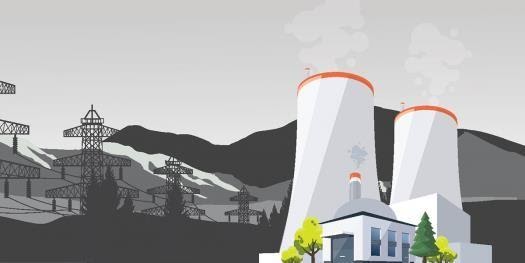Climate Change has been one of the rising issues faced all over the world in the 21st century.
Over the years, the major factors which have been causing climate change are Greenhouse gases and Global Warming. The major greenhouse gases are Carbon dioxide, Methane, Nitrous oxide, and fluorinated gases. Many of these gases occur naturally, but human activity is increasing the concentrations of them in the atmosphere.
On the other hand, nuclear energy has played a prominent role in controlling climate change, before knowing the pros and cons, let’s take a look at what nuclear energy means. It is the energy in the nucleus (core) of an atom. There is enormous energy in the bonds that hold atoms together. Nuclear energy can be used to make electricity. But first, the energy must be released. It can be released from atoms in two ways: nuclear fusion and nuclear fission.
Nuclear energy is one of the cleanest, most efficient, and the most available source of power on earth. To produce 1 kilowatt-hour of energy, nuclear power plants emit 16 grams of CO2. Meanwhile, to produce the same amount of energy, coal plants emit 820 grams of CO2. Nuclear energy is considered to be a low carbon-emitting energy source.
Wind and solar energy also produce a considerable amount of energy, but they cannot provide energy 24/7, they need a backup energy source. Nuclear sources can contribute to the transition to a low-carbon economy, helping reach climate change targets. One of the common cogitation running in the mindset of people is “Nuclear plants are dangerous to the community and their radiations are hazardous to health”.
There are 2 main reasons which vocalize the demerits of nuclear energy; nuclear waste and pollution.
Nuclear particles should have a safe disposable method in comparison to other waste sources. The wastes of nuclear plants take a long time to lose its harmfulness and also their disposal should be highly secure to prevent safety for living beings.
The next is accidents and disasters. Over the years, (From 1945 – 2015) there have been 7 major accidents in reactors or facilities dealing with nuclear waste. Most of them released significant amounts of radioactivity into the environment. They were rendered unfit for human habitation for decades to come.
So should we use nuclear energy?
The risks may outweigh the benefits and maybe we should stop looking into this direction and think of dropping this technology to prevent another tragedy that remarked places like Chernobyl and Fukushima.
This day (29th August 2020) marks the International Day against Nuclear Tests, let’s pledge to educate people on the day’s importance and also build a sustainable world to live in.
Image Courtesy : Energy.gov














Add Comment